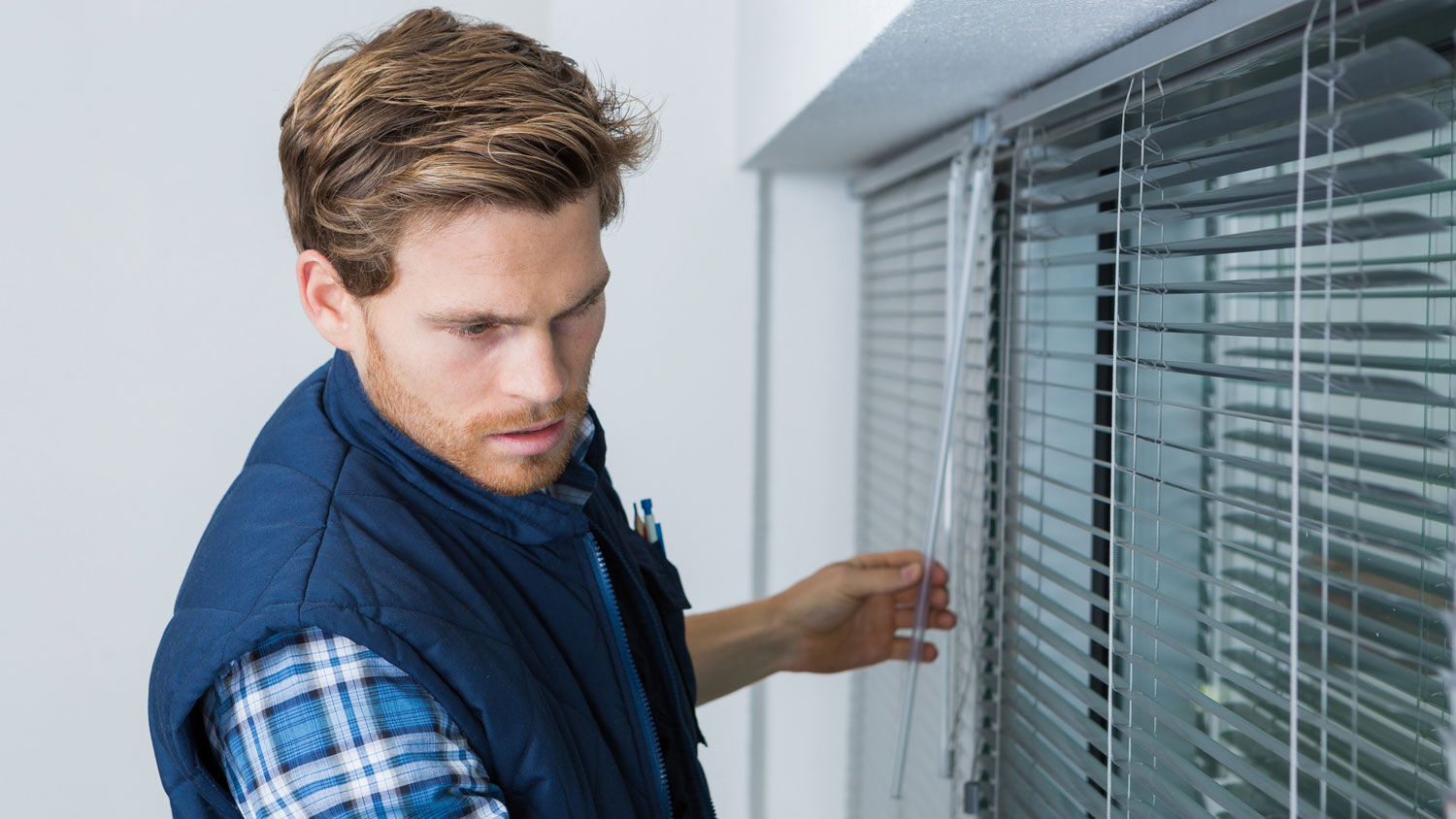
Get expert insights on blind repair cost, including average prices, key cost factors, and ways to save. Learn what impacts your blind repair estimate.
Blind cleaning costs average $180, with most homeowners spending between $90 and $250. Main cost factors include blind type, size, material, cleaning method, and labor.


Professional blind cleaning extends the life of your window coverings.
Total service costs vary by blind type, size, and cleaning method.
Cleaning for mini blinds starts at $10 per blind, while wood models can run up to $50 per blind.
Regular blind cleaning prevents dust buildup and costly repairs.
Hiring a blind cleaning pro costs $30 to $60 per hour and ensures thorough, safe cleaning for all materials.
This article was created using automation technology and thoroughly fact-checked and edited by an Angi Editor in accordance with our AI policy.
Blind cleaning cost is a key consideration for homeowners wanting spotless, allergen-free windows. The average blind cleaning cost is $180, with a range from $10 to $350. Per-blind rates often range from $10 to $50, depending on material and method. Understanding these costs helps you budget for a cleaner, healthier home.
Professional services may charge $1 to $5 per square foot or $30 to $60 per hour for labor, depending on the cleaning method and complexity. Let’s explore what impacts the price and how you can get the best value.
Several factors influence your total blind cleaning cost. Understanding these will help you make informed decisions and prioritize your cleaning needs.
The type of blinds you have is one of the biggest factors in determining cleaning cost. Venetian, vertical, roller, Roman, pleated, mini, wood, faux wood, aluminum, and fabric blinds each require different cleaning methods. Complex or delicate blinds, such as wood or fabric, often cost more to clean due to the extra care or specialty equipment needed.
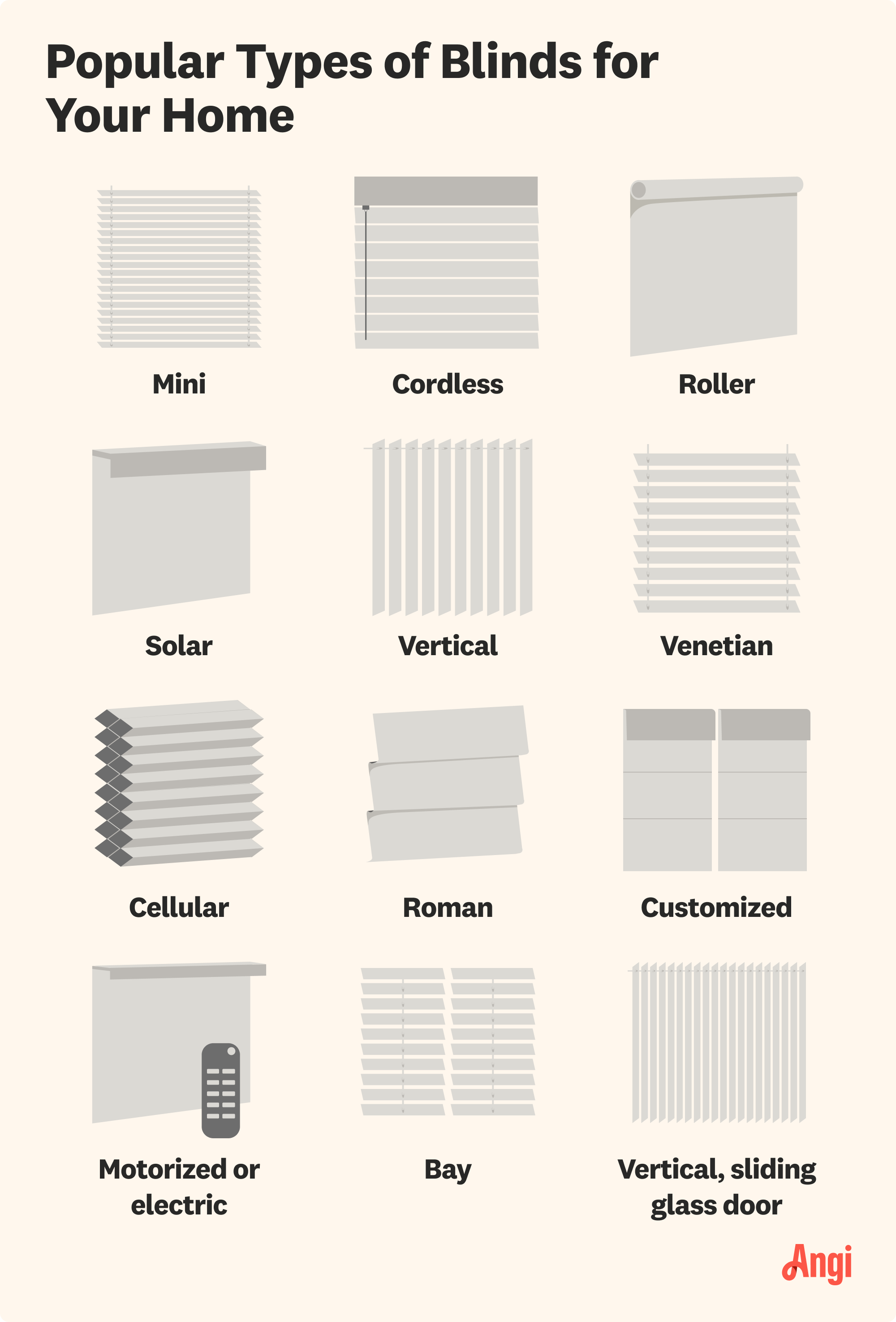
| Blind Type | Description | Average Cleaning Cost per Blind |
|---|---|---|
| Venetian | Horizontal slats, wood or metal | $15–$30 |
| Vertical | Long vertical panels, fabric or vinyl | $20–$40 |
| Roller | Solid sheet, vinyl, or fabric | $10–$25 |
| Roman | Fabric folds, more delicate | $20–$45 |
| Pleated | Accordion style, fabric | $15–$35 |
| Mini | Narrow slats, aluminum or vinyl | $10–$20 |
| Wood | Solid wood slats | $20–$50 |
| Faux wood | Composite, moisture-resistant | $15–$35 |
| Aluminum | Lightweight metal slats | $10–$25 |
| Fabric | Soft material, often custom | $20–$50 |
Blind size directly impacts cleaning cost. Larger blinds take longer to clean and may require more effort or specialized equipment. Small blinds are less expensive, while custom or oversized blinds can increase the price per unit.
How often you schedule blind cleaning affects your overall cost. One-time cleanings are priced per visit, while recurring service can come with discounts or bundled rates. Some companies offer quarterly, semi-annual, or annual maintenance contracts, which can reduce the price per visit.
If you have pets, allergies, or live in a high-traffic area, more frequent cleaning is recommended to maintain air quality and reduce buildup. Regular maintenance not only keeps blinds looking good but also helps prevent costly deep cleaning later.
The material of your blinds is another key cost factor. Wood, faux wood, aluminum, vinyl, fabric, bamboo, and plastic each have unique cleaning requirements.
Delicate materials like wood and fabric often require gentle, specialized cleaning methods that cost more. Durable materials like aluminum or vinyl are less expensive to clean but may still need extra care for stains or buildup.
| Material Type | Average Cleaning Cost per Blind |
|---|---|
| Wood | $20–$50 |
| Faux wood | $15–$35 |
| Aluminum | $10–$25 |
| Vinyl | $10–$25 |
| Fabric | $20–$50 |
| Bamboo | $15–$40 |
| Plastic | $10–$20 |
Professional blind cleaning is offered by cleaning companies, window treatment specialists, and independent contractors. Labor is charged per blind, per hour, or per project. Hourly rates range from $30 to $60, while per-blind rates are $10 to $50, depending on complexity.
Labor charges include removal, cleaning, and reinstallation. Some services add travel or minimum job fees, especially for small projects. Discounts are often available for cleaning multiple blinds in one visit.
Your geographic location can influence the cost of blind cleaning. Urban and high-cost-of-living areas tend to have higher rates, while rural areas may be less expensive. In-home cleaning is often more affordable, but off-site cleaning (where blinds are removed, cleaned, and returned) can add pickup and delivery charges.
Blinds on high windows or in multi-story homes may cost more due to access challenges. Remote locations may face additional travel fees.
Tipping for blind cleaning professionals is appreciated but not always required. If you’re pleased with the service, a tip of 10% to 20% of the total cost or a flat $10 to $20 is customary.
Tipping is more common for exceptional service, difficult jobs, or when a team goes above and beyond. If you prefer, leaving a positive online review or referring the company to friends is a great alternative.
The recommended frequency for blind cleaning depends on the material, household environment, and your health needs. For homes with allergies, pets, or smokers, quarterly or semi-annual cleaning is best. In lower-traffic homes, annual cleaning may be sufficient.
Spring and fall are popular times for deep cleaning, but regular maintenance throughout the year helps prevent buildup and reduces the need for intensive cleaning. If you notice visible dust, stains, or reduced air quality, it’s time to schedule a cleaning. Keeping up with a regular schedule extends the life of your blinds and boosts indoor air quality.
The cleaning method used for your blinds has a direct impact on cost and results. Common methods include ultrasonic, steam, hand washing, dry cleaning, and both on-site and off-site cleaning.
Ultrasonic cleaning, which uses high-frequency sound waves, is effective but often more expensive. Steam cleaning works well for certain materials but can damage others. Hand washing is the most affordable option, though it’s more labor-intensive.
| Cleaning Method | Description | Average Cleaning Cost per Blind |
|---|---|---|
| Ultrasonic | Deep cleaning with sound waves, off-site | $20–$50 |
| Steam cleaning | Hot steam used on-site or off-site | $15–$40 |
| Hand washing | Manual scrubbing, basic stains, on-site | $10–$25 |
| Dry cleaning | Chemical treatment for fabric blinds | $20–$45 |
| On-site cleaning | Cleaned at your home, minimal disruption | $10–$35 |
| Off-site cleaning | Removed, deep cleaned, and reinstalled | $20–$50 |
Ultrasonic and dry cleaning are best for delicate or heavily soiled blinds, while hand washing is suitable for everyday dust and grime. Always confirm the cleaning method is safe for your blind material.
Add-on services can increase your total blind cleaning cost but provide valuable convenience and results. Common add-ons include:
Blind removal and reinstallation: $20 to $50 per set
Stain or spot treatment: $10 to $30 per blind
Blind repairs (such as restringing or slat replacement): $10 to $30 per repair
Cord or mechanism cleaning: $5 to $15 extra per blind
Pickup and delivery for off-site cleaning: $30 to $60 per trip
Minimum service charges: $75 to $100 per visit
Travel or service area fees: $10 to $50, depending on distance
Expedited or same-day service: Add $30 to $100
These add-ons are optional but can be worthwhile for complex jobs, convenience, or when restoring older blinds.
You can choose between DIY blind cleaning and hiring a professional, each with different costs and benefits. DIY cleaning requires supplies like cleaning solutions, microfiber cloths, brushes, vacuum attachments, and ladders. Expect to spend $20 to $60 on basic supplies for most homes.
Professional cleaning provides expertise, thoroughness, and convenience—especially for large quantities, delicate materials, or hard-to-reach blinds. Pros have specialized equipment and can often prevent damage or incomplete cleaning that sometimes happens with DIY efforts.
DIY works well for regular upkeep, but for deep cleaning, stains, or fragile blinds, it’s best to hire a local blind cleaning pro.
Consider the following tips to keep your blind cleaning costs within budget:
Schedule regular maintenance to avoid deep cleaning charges.
Clean blinds yourself between professional visits.
Bundle multiple blinds or rooms for volume discounts.
Choose in-home cleaning to avoid pickup and delivery fees.
Compare quotes from several local pros.
Maintain blinds to prevent stains and buildup.
Ask about loyalty programs or recurring service discounts.
Remove and reinstall blinds yourself if possible.
Avoid peak season scheduling for lower rates.
Home is the most important place on earth, which is why Angi has helped more than 150 million homeowners transform their houses into homes they adore. To help homeowners with their next project, Angi provides readers with the most accurate cost data and upholds strict editorial standards. We extensively research project costs to develop the pricing data you see, so you can make the best decisions for you and your home. We rely on reputable sources, including the U.S. Bureau of Labor Statistics, academic journals, market studies, and interviews with industry experts—all to ensure our prices reflect real-world projects.
Want to help us improve our cost data? Send us a recent project quote to [email protected]. Quotes and personal information will not be shared publicly.
From average costs to expert advice, get all the answers you need to get your job done.

Get expert insights on blind repair cost, including average prices, key cost factors, and ways to save. Learn what impacts your blind repair estimate.

Cellular shades are more cost-effective and energy-efficient than many other window treatments, but they’re also harder to clean. Learn how to easily clean these blinds at home.
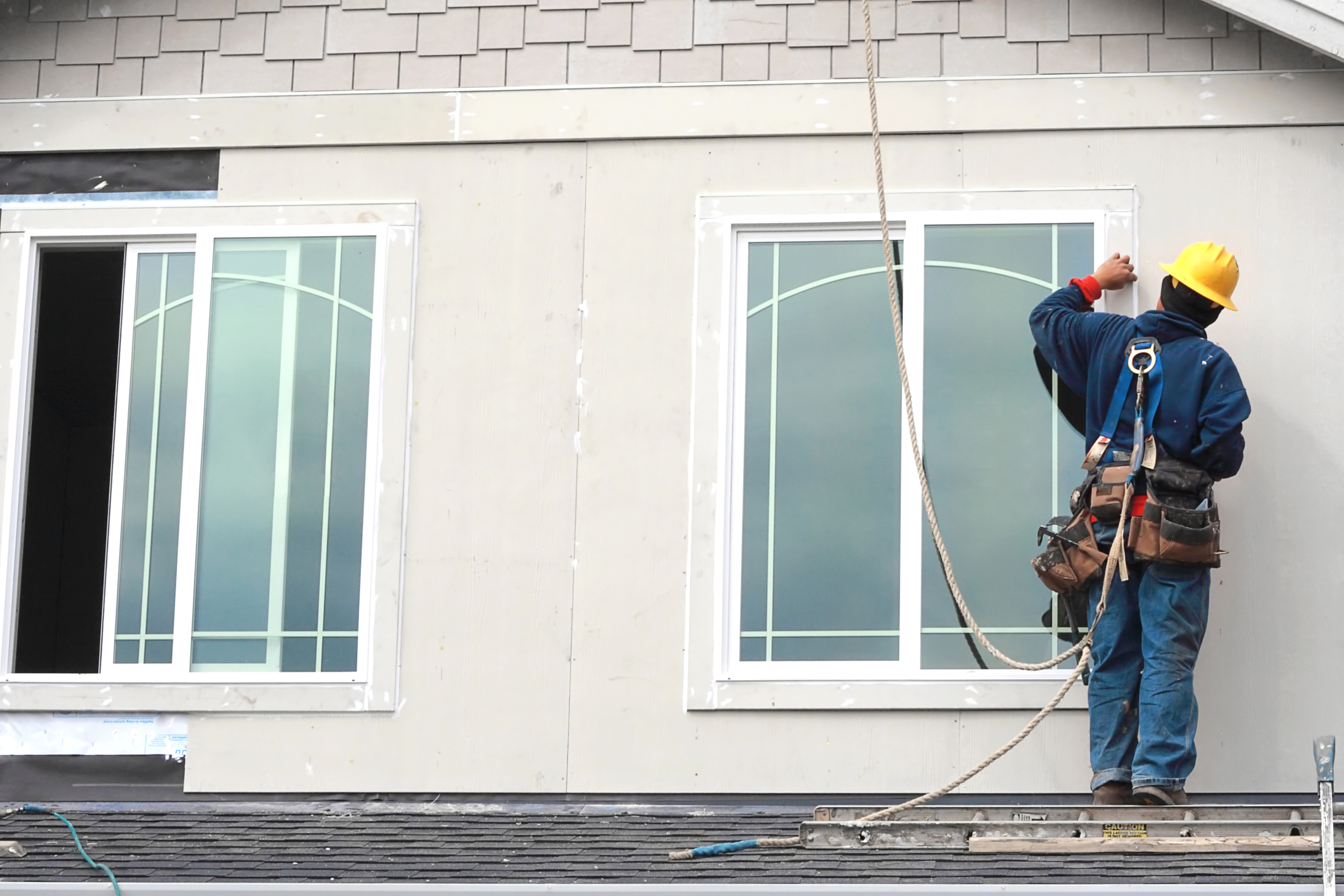
Discover how much solar screen costs, exploring key cost factors and expert tips to help you budget for solar screen installation on your home.
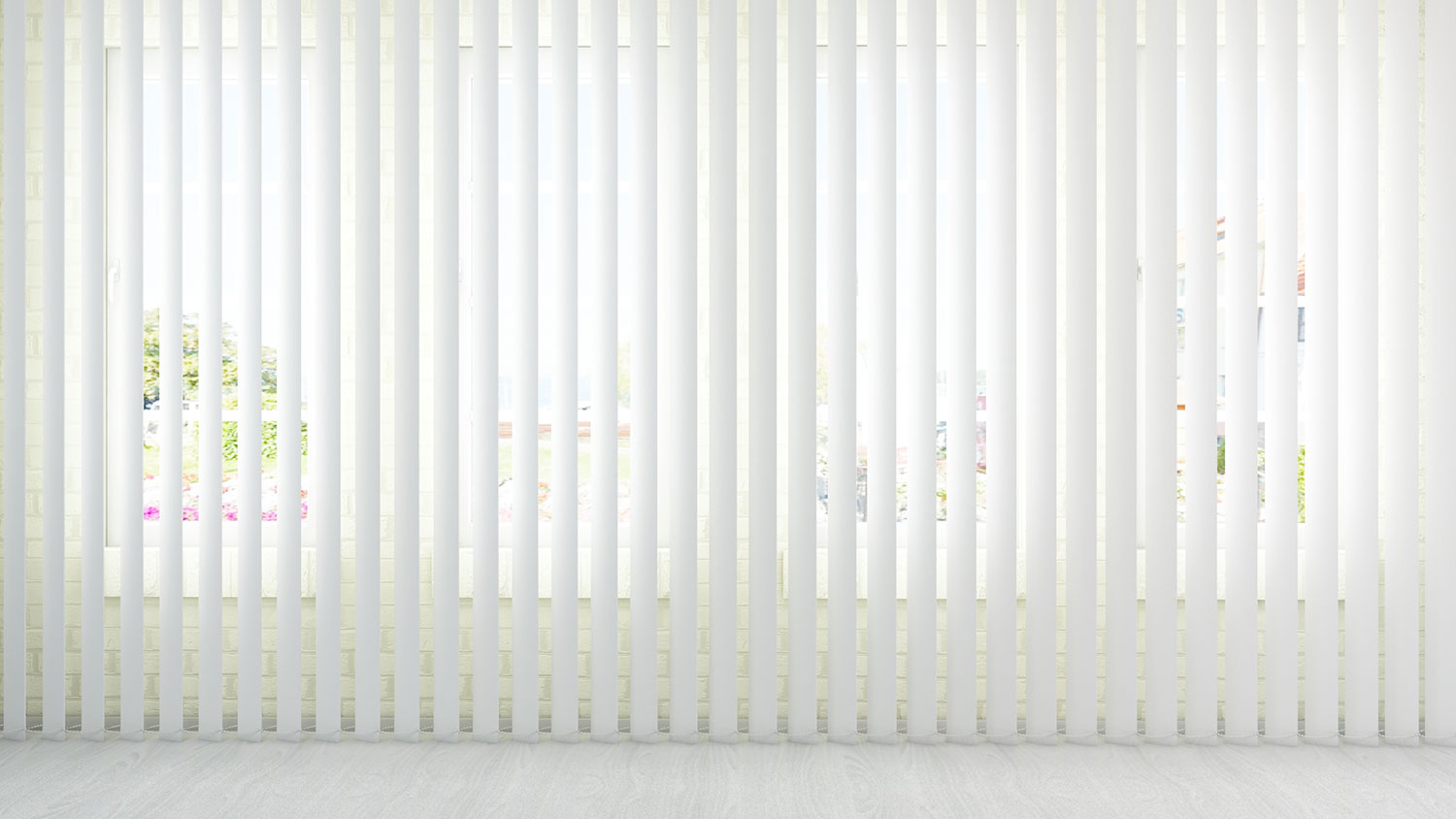
Discover the cost to install vertical blinds. Learn about average prices, key cost factors, and tips to save on your vertical blinds installation project.

High-tech ultrasonic cleaning takes your dirtiest window coverings and makes them new again. Use our guide to learn about the process, costs, and advantages of ultrasonic cleaning and get helpful tips to find the best cleaning service near you.
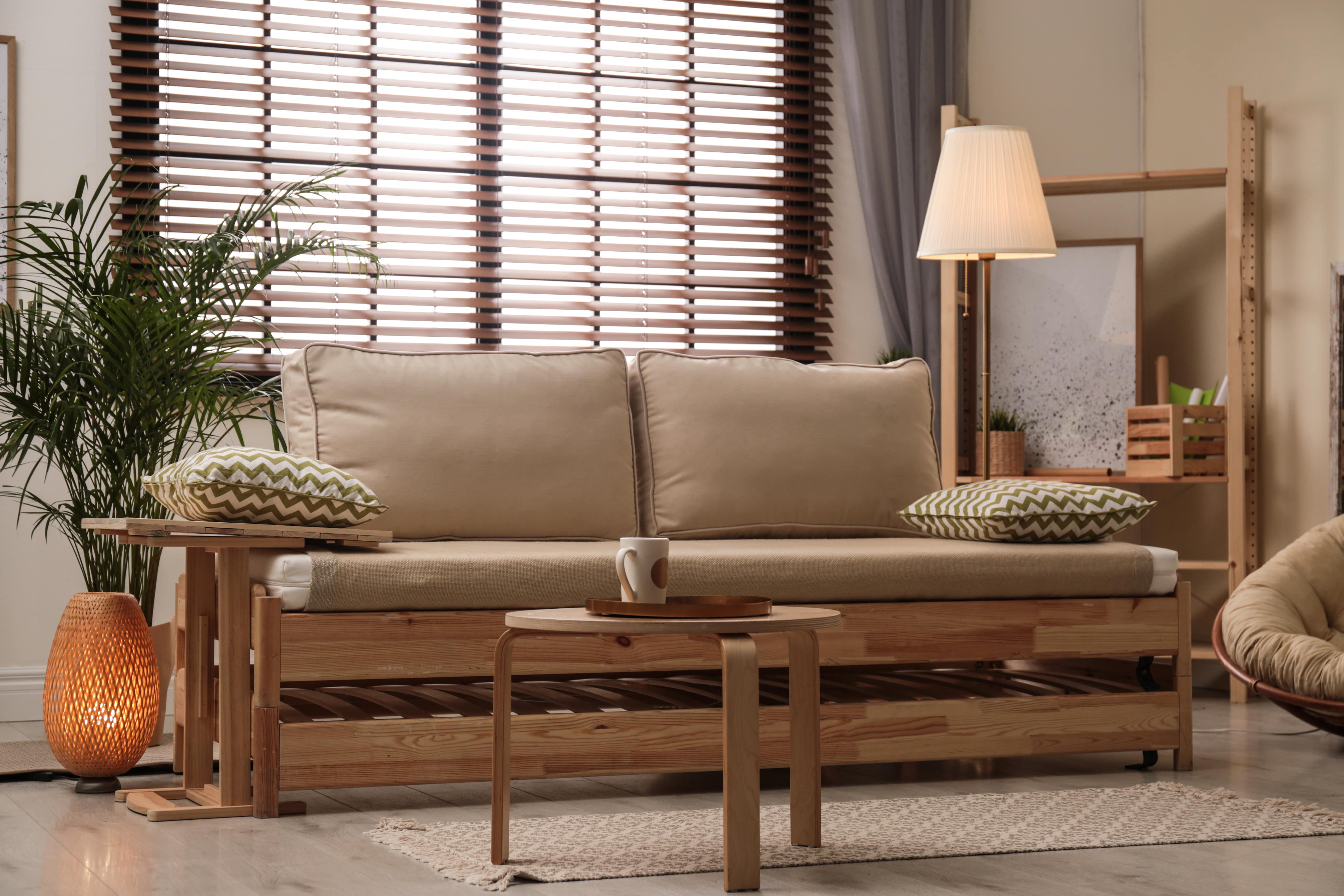
Not sure who to hire to clean blinds or shades? Learn which blind cleaning pros to call, how they work, and how to choose with confidence.